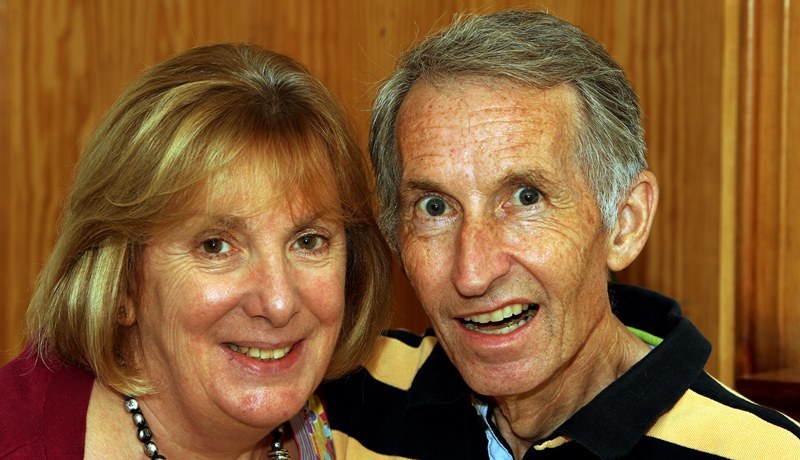A seriously ill former Dundee fireman, who lost more than two stone in 13 days, has said that he did not feel safe in Ninewells Hospital.
His wife, a former Ninewells radiographer who took early retirement to care for him, was reduced to tears when a nurse called her in to the hospital suggesting her husband was dying, then laughed when she realised she’d phoned the wrong relative about another patient.
Alasdair McLeay (65), who lives in the west end with his wife Trudy, has motor neurone disease and has spent several weeks in Ninewells this year.
Mrs McLeay says she is now ashamed to be associated with the NHS and criticised the lack of care and support available.
Mr McLeay’s most recent admission was at the end of June, when his GP was so concerned at his weight loss he had him admitted to the hospital where it was discovered that a feeding tube previously connected to his stomach had been incorrectly placed resulting in what Mrs McLeay described as her husband being “starved to death”.
Mrs McLeay said there had been a catalogue of errors in her husband’s treatment.
She said, “I am ashamed to have been associated with NHS Tayside for 40 years and had no idea how bad and unsafe it was on the receiving end.”
She said staff in several wards at the hospital could not even remember her husband’s name and he was addressed by a variety of different names.Laughed at “distressing” mistakeBut the disrespect was nothing compared to the concern about blood and other vital samples being sent for testing wrongly named.
“We did at one point change the names on his request forms for bloods, MRSA screens, etc,” said Mrs McLeay.
In a catalogue of complaints, one distressing situation stands out.
Mrs McLeay was called at home and told that ward staff at Ninewells were very concerned about her husband and thought he had a chest infection, a potentially fatal complication for someone with motor neurone disease.
“I was in tears driving to Ninewells,” said Mrs McLeay. “I thought I wouldn’t be given a chance to say cheerio.
“I thought he would be dead.”
However, when Mrs McLeay arrived at the hospital her husband was on his feet.
She said, “I spoke to a nurse who laughed and said they must have given me the wrong patient details. It was very distressing.
“There is great emphasis on patient safety in Ninewells and a tendency to give each other pats on the back for effort and compliance with patient safety documentation.
“I find this ludicrous when the basic concept of checking a patient’s date of birth against his wristband is ignored.”
She added, “There were nurses who were very good but they were by far outnumbered by both medical and nursing staff who were unable to deal with us in a caring or appropriate manner.”Husband “no longer safe”She said that last week her husband turned purple and starting shaking uncontrollably while on a ward in Ninewells and an attending doctor went to find a piece of equipment.
“She never came back,” said Mrs McLeay. “Did she take fright?”
Mrs McLeay said it was only thanks to a “clued-in” nurse who phoned a specialist to ask how to treat a choking patient with motor neurone disease that she was advised to call in a physiotherapist as an emergency.
Mrs McLeay said, “At this point I knew that my husband was no longer safe in Ninewells and that I had to get him home.”
Her husband, whose condition means he cannot speak, was in no doubt as to who was keeping him alive.
He wrote down his feelings for The Courier, stating, “Without the care, dedication and love shown to me by my wife Trudy I can honestly say that I would no longer be here.”
An NHS Tayside spokesperson said, “We are deeply concerned to hear of the problems Mr McLeay experienced during his recent stay in hospital and we apologise for the obvious distress this has caused.
“As a matter of urgency, we will now contact Mr and Mrs McLeay to offer them a meeting with the chief operating officer.”
